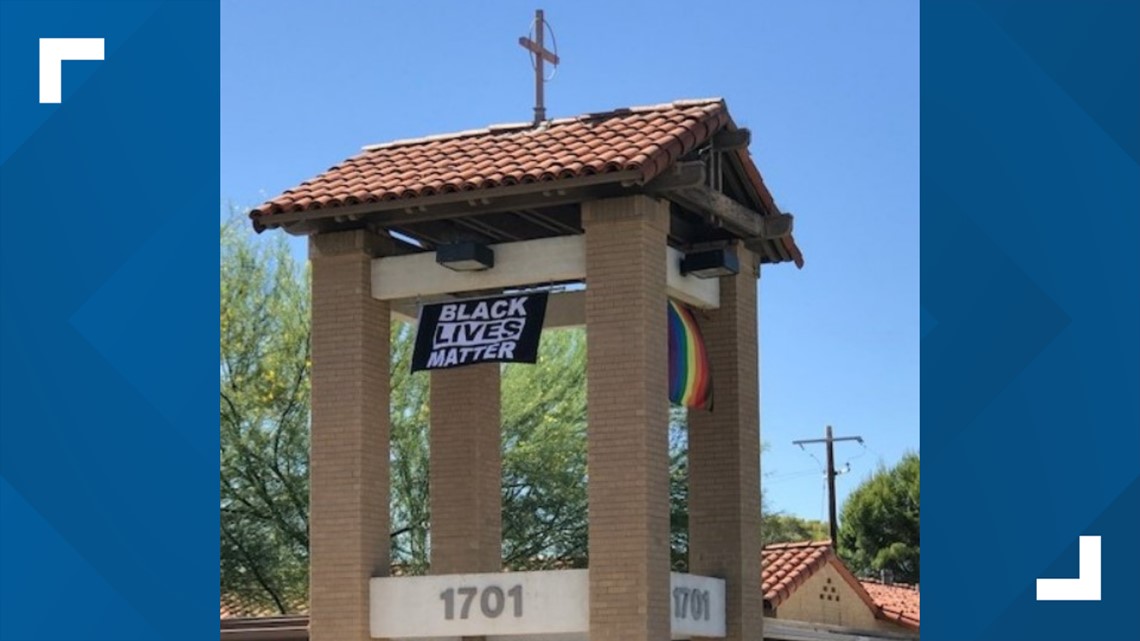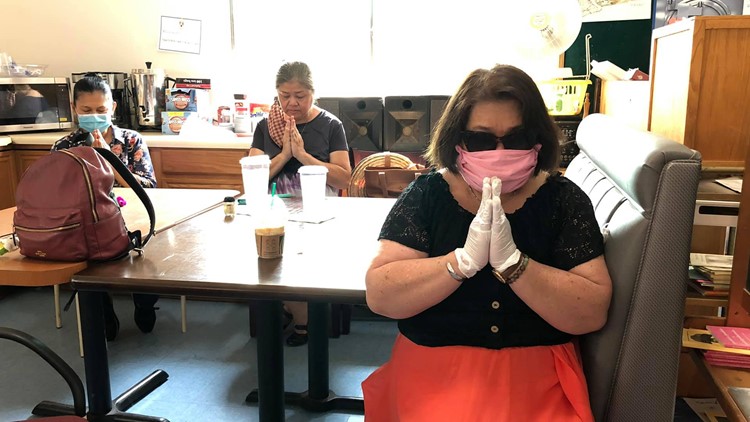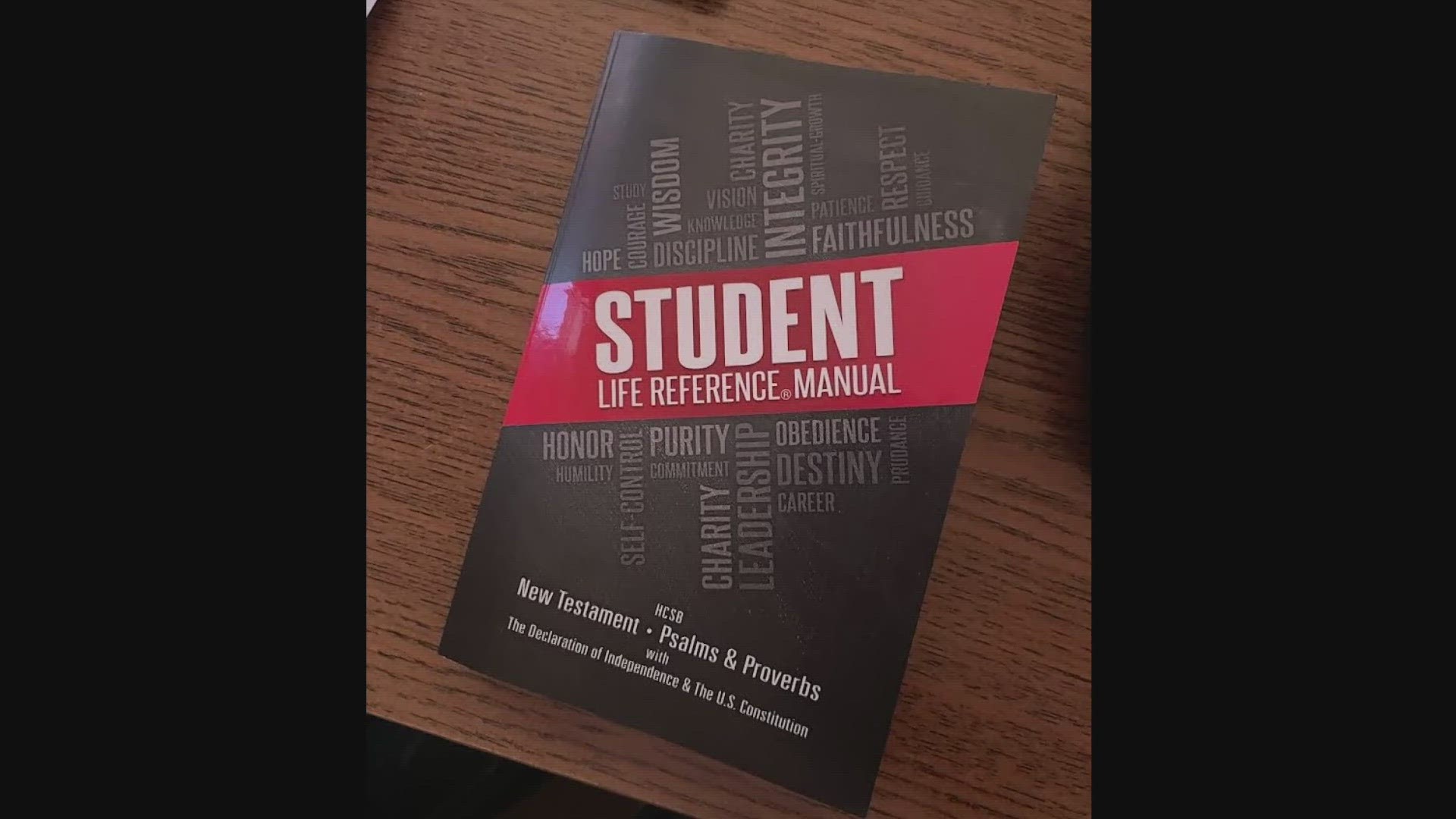ARIZONA, USA — The usual ways people socialize, grieve and find happiness have been challenged during the coronavirus pandemic. And many of us are still figuring out how to adapt to the new normal.
When will be the next time we'll be able to safely celebrate a milestone with family? When can I go to a restaurant with friends guilt-free? When will I be able to comfort a loved one in the hospital?
There haven't been any easy answers to these questions. One of the major groups which have had to quickly confront these questions are the Valley's numerous religious communities.
"The pandemic interrupts this very basic, natural, fundamental need to be close to others at these important points of life, death, birth, and marriage," ASU Religious Studies Associate Professor Jason Bruner said. "All of these points of our lives where you see the most ritual activity taking place."
Valley religious communities have had to confront the pandemic at some of the most human levels and they have adapted to keep their communities close and healthy. The solutions they have found may help guide others on how to stay social, mourn, and even find joy while living during the pandemic.
How we can gather
Gathering together, being close to one another in a physical space, was perhaps the biggest practice taken for granted in pre-pandemic life.
While people used to be able to freely engage with individuals or entire communities in person, most now stay home as much as they can to protect others and themselves.
Not being able to go somewhere and take part in social rituals, such as graduation ceremonies, marriages, and national celebrations has left many wondering how the community can develop during a time of social distancing.
This was the same problem the Muslim community had to confront earlier this year during the celebration of Ramadan.
"It is very hard to give meaning to sitting across a screen and pretend that you are actually with other people or actually with your congregation," Mustafa Bahar, a board member on the Arizona Faith Network representing civic Muslim organization, said.
Muslims aren't required to practice their prayers or any other rituals within a mosque, so having to pray in isolation was not a drastic change. However, celebrating with the community is a main focus during the time of Ramadan.
Bahar is also a branch director for the Sema Foundation, a community service nonprofit. The organization has been providing 3,000 free meals for people during Ramadan every year for the past 10 years and usually offers a place for people to celebrate with others in their community.
Due to the pandemic, Sema members could not take part in Ramadan in the same way.
Bahar and Sema decided to move the celebration to a digital format since community members could no longer gather in a physical space to celebrate.
"We didn't want to try and replicate the feelings or emotions of how we would have done it previously, because it's not the same online," Bahar said. "Instead, we asked how we can adapt to this and find new ways to really engage with our community."
The organization's move to digital events actually made their community wider, allowing those who would usually not be able to take part in the celebration to join, including the house-ridden or those from other parts of the world.
"People didn't have to worry about commuting or the extra time it would take to get there," Bahar said. "We had these Muslim people from Mexico City and other places come and join us. It was an amazing experience for us."
Gathering with others to share in an important celebration can't happen physically during the pandemic. But, the spirit of the celebration can be just as strong in the virtual world.
How we can mourn
Arizona has seen 5,525 deaths due to the coronavirus as of Wednesday, according to the Arizona Department of Health Services.
The virus is not only prematurely ending lives, but is also taking away the ability for loved ones of those who have died to properly mourn their loss.
"We haven't mourned as a nation," Rev. Dr. Bob Howard, the pastor of Community Christian Church in Tempe, said. "We haven't had the ability to mourn, and I worry about that because we are already not practiced in mourning that can keep us going, binds us together, and gives us hope."
Rev. Howard has had to work to adapt the memorial and grave-side services he's done during the pandemic, and is fearful about the ones he will have to do in the future.
"I worry that if we have a spike of the virus in the fall, that there may be this surge in funerals," Rev. Howard said. "We may resemble New England in the winter when it comes to deaths."
Technology has helped the mourning process for many of the church's congregation. The last words of those dying have been heard by loved ones mainly through a phone or video call.
Preparing people to handle the event of a death is a delicate process, Rev. Howard said. Being resilient while undergoing trauma and during the mourning process is a message he tries to convey both in funeral services and weekly gatherings during the pandemic.
A key factor in that resilience, he says, is a sense of hope for something larger than the individual, such as helping struggling communities or fighting for social justice causes.
Rev. Howard has made this focus on community engagement a main pillar of his congregation for the past several years. The church has organized events such as petition signing booths in the church's parking lot, encouraging other churches to use their parking lots for coronavirus testing sites, or delivering sack lunches to the homeless.


Even though we as a nation are going through tragedy, he said that participation in these community service programs have increased.
"If anything else, our numbers of sack lunches that we have given out have increased during this COVID crisis," Rev. Howard said. "We're trying to bring people's vision beyond our own present situation."
While tragedy affects us on an individual level, it never happens in a vacuum. The best medicine to have while grieving may be finding others who are also mourning and extending them a helping hand.
"We had a speaker during one of our meetings that said 'get through today and remake tomorrow'," Rev. Howard said. "There has got to be a balance between caring for yourself today and hoping for a better future."
How we can find joy
Wat Promkunaram is no stranger to tragedy.
The Thai Buddhist Temple in Waddell holds a sorrowful place in Arizona history. Around 29 years ago, the worst mass shooting in Arizona history happened on the temple's grounds.
On August 9, 1991, nine people, including the temple's abbott and five monks, were shot and killed during a robbery at the temple.
"We still feel the pain," Chanta Neal, the Vice President of Wat Promkunaram, said. "I don't know how to explain the sadness. You forgive, but you never forget about it."
There is no comparing the tragedies that happen in our lives. The differences between losing loved ones in a sudden mass shooting and living in an international pandemic are vast.
However, according to Neal, the previous tragedies we experience can help inform us on how we may feel during future tragedies.
"At least now, you know how to protect yourself and protect someone else around you," Neal said. "During the shooting, you couldn't protect yourself. You didn't know who did it or why. But, after that, during the pandemic, you can cope with that."
She has had to cope with the experiences she's had during the pandemic on two fronts: in her religious community, and on the front lines in the fight against the virus. Neal has a doctorate of nursing and uses it to provide at-home care.
She found joy in the temple's community gatherings throughout the week before the pandemic. Now, she finds it through over-the-phone check-ups.
"I used to see a lot of the same faces coming to the temple," Neal said. "If someone disappeared or didn't show up, I would call them to check in. That hasn't changed during the pandemic. Everyone in the Thai community loves each other like family. We check on each other like that."
Neal says she still finds herself sorrowful or angry during the pandemic, like when people don't wear masks or when she thinks about how long it will take for a vaccine to be developed.
She affirms that feeling these emotions is important during such a tragic time, but if they ever get to be too much, she can find joy in helping those close to her.
"This is the way of life," Neal said. "It's the new normal for everyone, not just ourselves. For someone else, too."
If the mourning process in the wake of tragedy ever gets to be too much, joy can be found in the shared experience of those around you.




